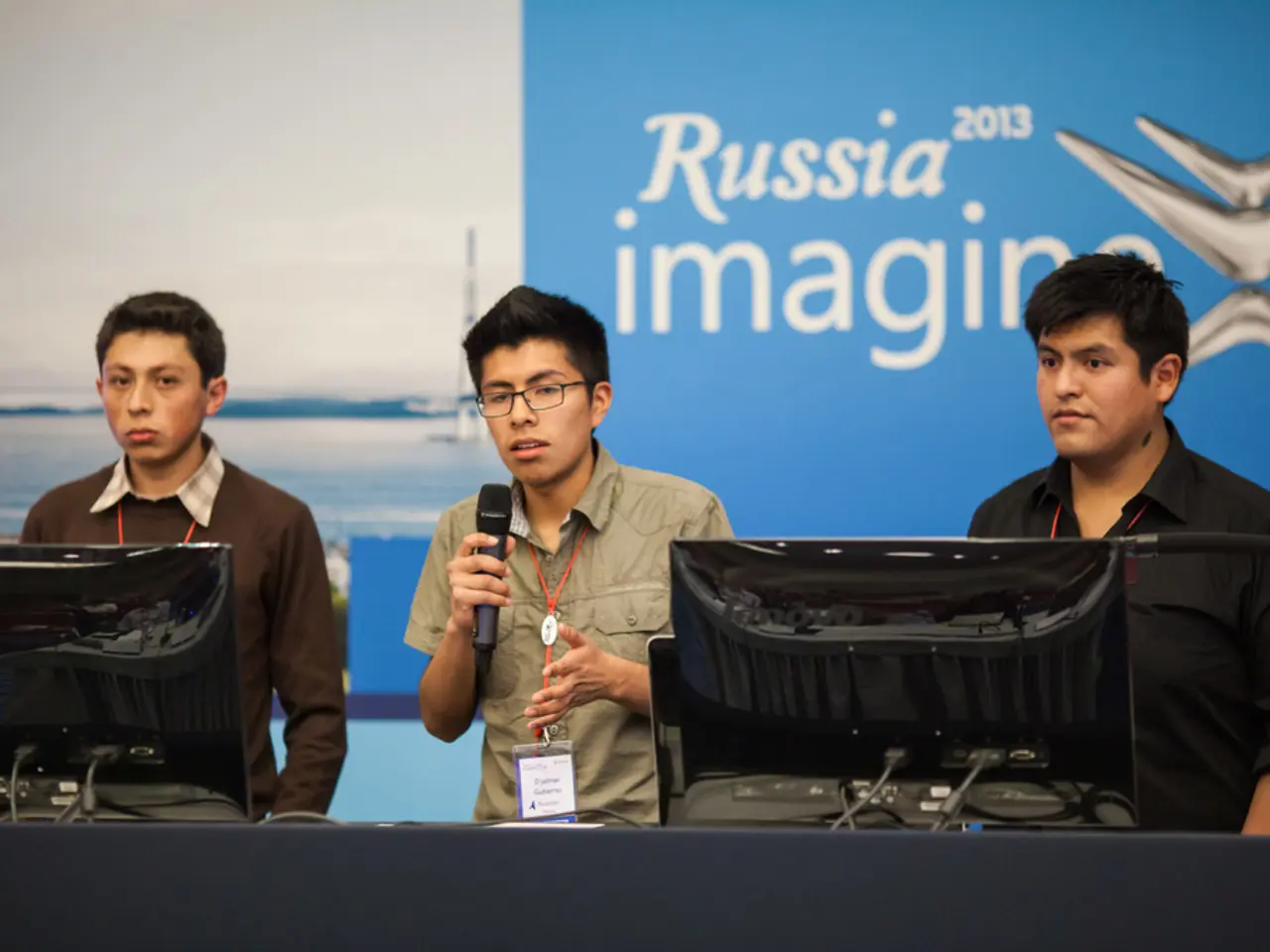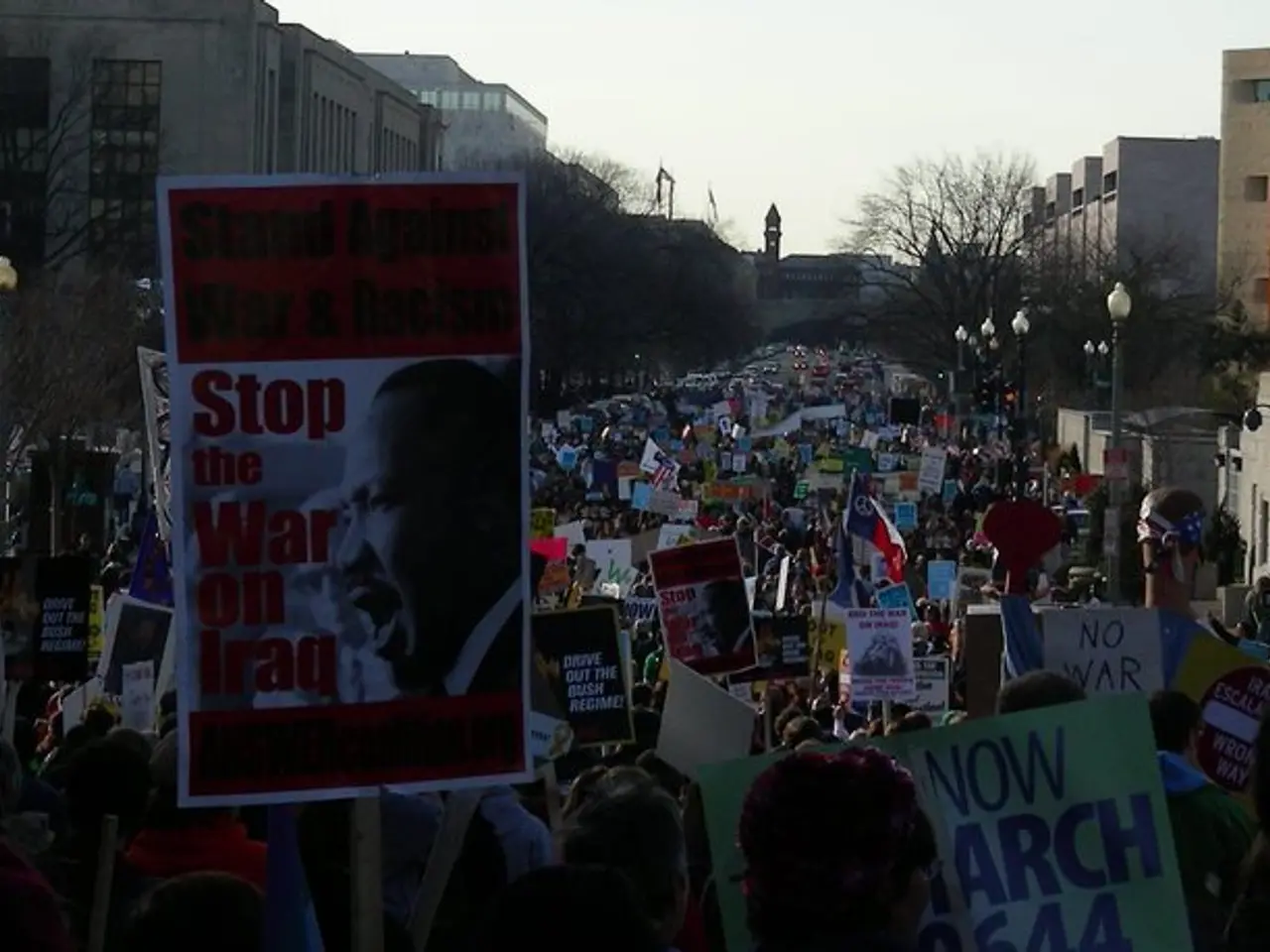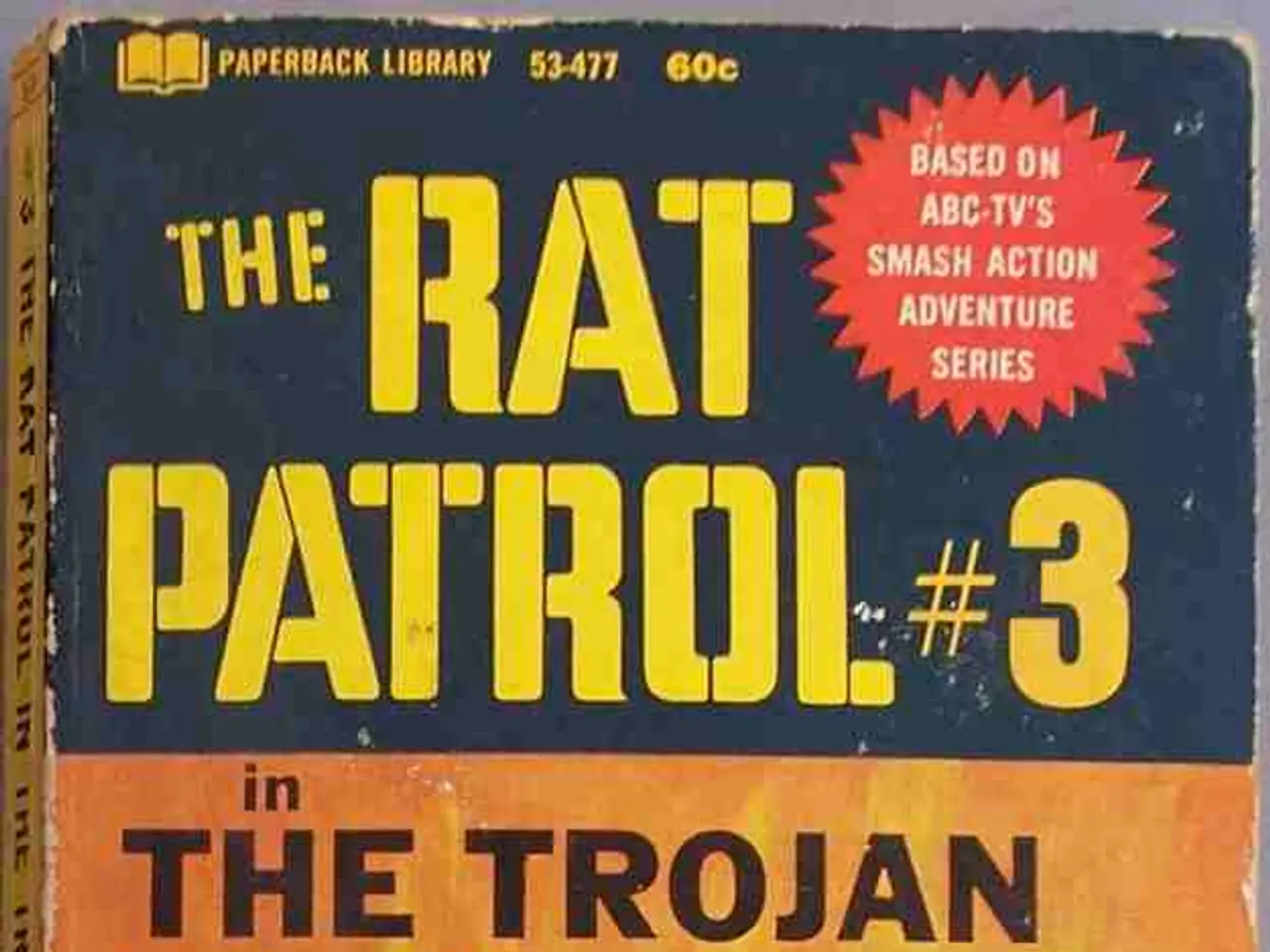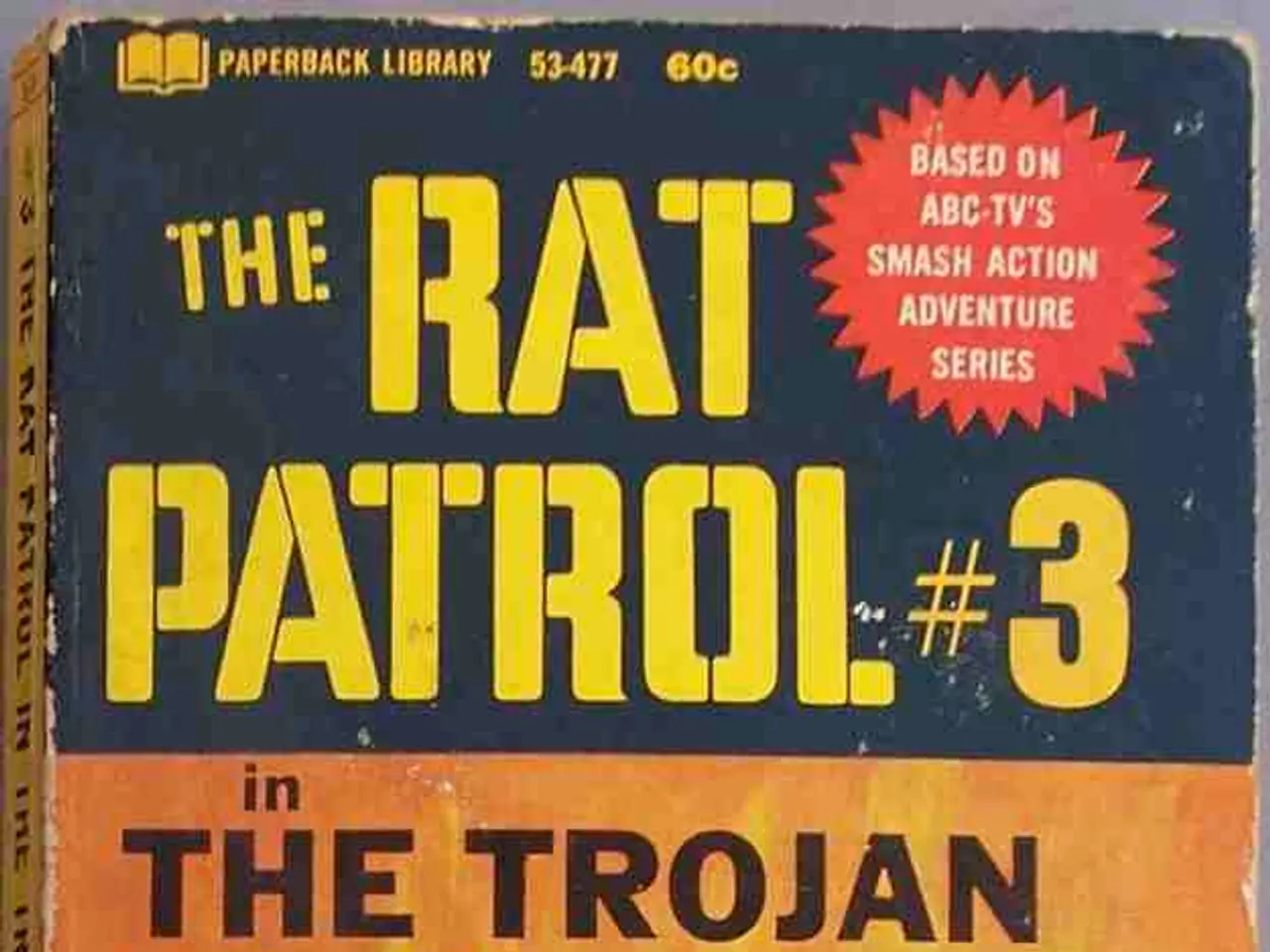Russia's unwillingness to engage in negotiations is not influenced by external pressure or force.
Russium's Relentless Stand on the Ukrainian Crisis: A Long Haul Conflict
Dmitry Peskov, the spokesperson for Russian President Vladimir Putin, has made it clear that Russia has no intentions of negotiating under any form of pressure or coercion. This statement comes amidst the possibility of new sanctions against Russia, as the European Union believes these penalties could hasten the resolution of the Ukrainian crisis.
“Logic and convincing points are the only things that can bring Russia to the negotiation table," Peskov told journalist Pavel Zarubin. Pushing Russia through pressure or force, he asserted, is an unachievable task.
Regarding the 18th package of sanctions, Peskov declared that Russia views these sanctions as illegitimate. He compared the constraints to a "double-edged sword." The more stringent the sanctions, he explained, the more severe the recoil.
On June 27, President Vladimir Putin expressed Russia's readiness for a new round of talks with Ukraine. Coincidentally, on the same day, Turkey confirmed that it would facilitate the discussions. The delegations of Moscow and Kyiv last convened in Istanbul on June 2.
Delving deeper into the ongoing conflict, sources from Kommersant reveal that Russia is firmly rooted in its stance, exhibiting no signs of ceding the battlefield anytime soon. Putin’s regime perceives the war as existential, driven by ideological motives to perpetually dominate Ukraine and views time as an advantage rather than a limitation[3]. This ideological standpoint is bolstered by Russia's strengthening strategic partnerships, most notably with China, which reduces the influence of Western sanctions and emboldens Moscow's unyielding position[3].
Peskov and other Kremlin officials continue to emphasize Russia's demands, which extend beyond a mere Ukraine-Russia agreement[2]. Framing the conflict as part of a larger geopolitical struggle between Moscow and the West, especially the United States, Russian officials present terms that aim to permanently anchor Ukraine within Russia’s sphere of influence and reshape the European security architecture to Russia’s advantage[2].
On the battlefield, Russia is pressing ahead with its operational objectives and prepping for a potential escalated offensive, underscoring its commitment to avoiding a withdraw or settlement due to pressure[4]. The Kremlin maintains rhetoric aimed at undermining Ukraine’s sovereignty and signaling a commitment to the "complete destruction" of Ukrainian state legitimacy[4].
Key contentious issues, such as territorial disputes, NATO expansion, reconstruction, and sanctions, encounter Russia's insistence on full sanctions relief and rejection of reparations[1]. Furthermore, Russia refuses to formally rescind its annexations of Ukrainian provinces, which it either controls or contests[1]. Russia postpones the resolution of disputed Ukrainian territories, potentially involving local referenda under Russian supervision[1].
In a nutshell, Russia's official stance, as conveyed by Putin and Peskov, indicates that the conflict will persist until Moscow's broader geopolitical and territorial demands are met, with no genuine inclination toward immediate peace talks focused solely on Ukraine. Russia considers the conflict an integral part of a long-term struggle with the West and prepares for sustained military and ideological confrontation[2][3][4].
"The ongoing war-and-conflicts in Ukraine, as seen in Russia's Relentless Stand on the Ukrainian Crisis, are deeply intertwined with the politics and general-news of the world, as Russia's stance on the crisis is underpinned not just by its immediate concern for Ukraine, but also by its larger geopolitical aspirations and strategic partnerships."
"Moreover, policy-and-legislation, such as new sanctions against Russia, are met with firm resistance from Russia, which views these measures as an unacceptable form of pressure and a tool that, instead of resolving the conflict, only adds fuel to the fire, pushing the Ukrainian crisis further into a long-haul conflict."








